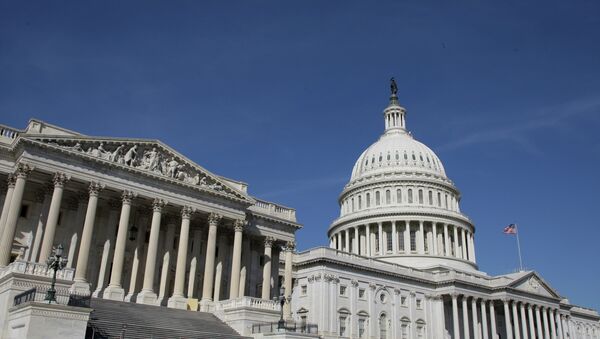The U.S. Administration is holding active consultations with the Congress on the abolition of the Cold War-era Jackson-Vanik Amendment, a major hurdle in bilateral trade with Russia, State Department spokeswoman Victoria Nuland said on Tuesday.
“We’ve been doing all kinds of consultations with members of the Congress. And as you know, our Ambassador, Mike McFaul, is home as well and he’ll be doing some meetings on this over the course of the week,” Nuland told a daily press briefing.
The amendment, named after Congressmen Henry M. Jackson and Charles Vanik, was introduced in 1974 to restrict trade with the Soviet Union and other non-market economies until they allowed free emigration.
The amendment limits trade with Russia and is an obstacle to the application of World Trade Organization (WTO) rules between the two countries. The restrictions imposed by Jackson-Vanik are often waived, but remain in place and are a thorn in the side of Russia-U.S. trade relations.
Earlier, sources in the Congress told RIA Novosti that McFaul was meeting with Congressmen very often, trying to talk them into supporting the amendment repeal. First hearings on the amendment are to be held in the Senate Finance Committee on Thursday.
“President [Barack] Obama has now asked Congress to repeal Jackson-Vanik to ensure that our own exporters - American exporters - benefit from Russia’s accession to the WTO,” Nuland said.
“Because if we have this kind of non-WTO compliant legislation on the books against any country, then once that country accedes, our own companies cannot take full advantage of the WTO mechanisms,” she said.
Nuland said the amendment had been adopted to “encourage the Soviet Union to allow free emigration. Now we have Russia; we don’t have those kinds of emigration problems, so we think it’s time for repeal.”
Obama announced in mid-November after his talks with his Russian counterpart Dmitry Medvedev that the U.S. Administration was launching consultations with the Congress on repealing the notorious amendment.
Medvedev discussed the prospect of repealing the amendment with Max Baucus, chairman of the U.S. Senate Committee on Finance, in February.


